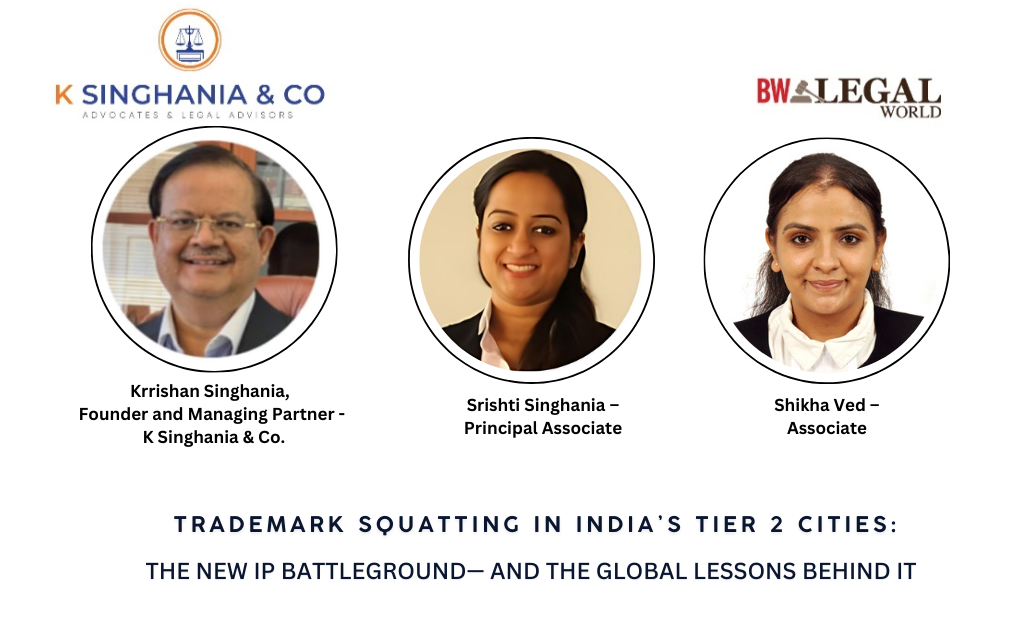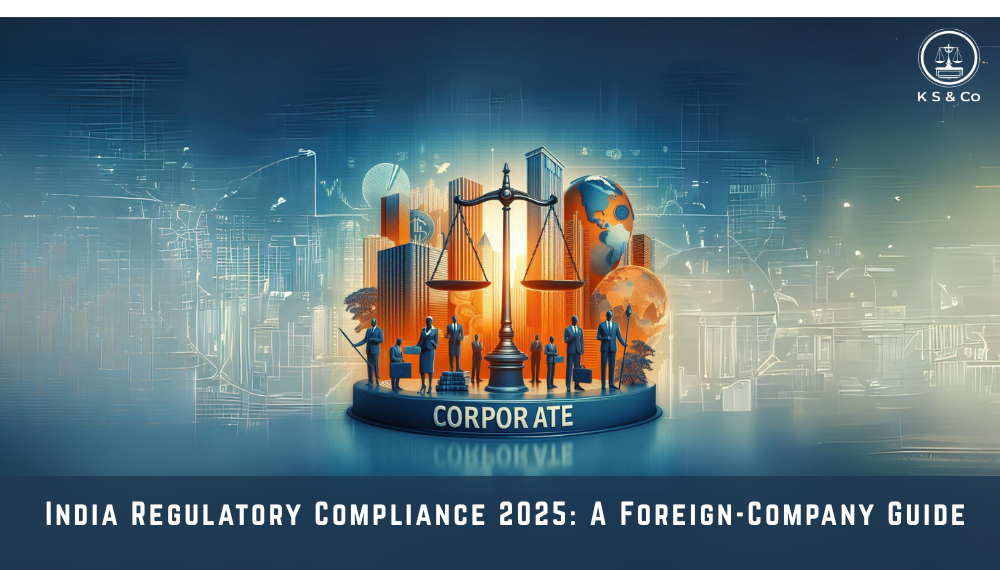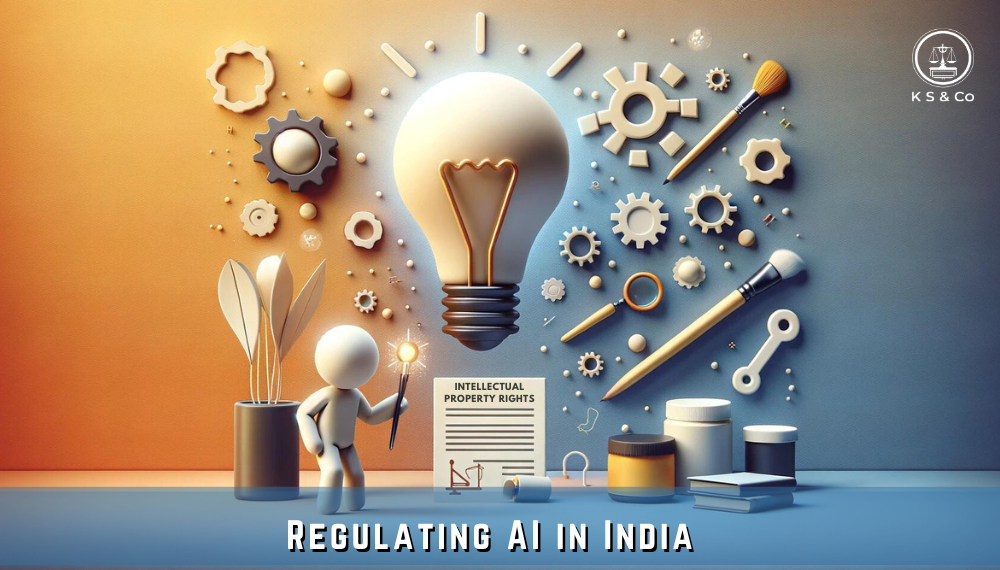The Supreme Court of India holds that the power of the court to modify an award is limited to the terms as prescribed under section 34 of the Arbitration and Conciliation Act, 1996.
Date of Judgement:
11th August 2023
Case Title: M/S Larsen Air Conditioning and Refrigeration Company V. Union of India & Ors. (Supreme Court of India)
Facts of the case
- The dispute between the appellant and Union of India (hereafter ‘respondent-state’) arose from a contract entered into pursuant to being awarded the tender. In the course of work, certain disputes arose. On 22.04.1997, the respondent-state referred the dispute to arbitration, and the proceedings closed on 24.10.1998. The tribunal published its award on 21.01.1999 and directing the first four respondents to pay 18% pendente lite and future compound interest on the award in respect of Claim Nos. 1-8.
- The respondent-state challenged the award under Section 34 of the Arbitration and Conciliation Act, 1996 (hereafter ‘the Act’). The district court dismissed the challenge on the ground that it could not sit in appeal over the award and since the respondent-state had failed to file any proof of the grounds alleged. Aggrieved, the respondent-state, preferred an appeal before the High Court in 2003. In the interim, the respondent-state deposited ₹10,00,000 in the District Court, Kanpur on 06.06.2003 against ₹1,82,878.11 due at the time.
- Partly allowing the appeal, the High Court disapproved the reasoning in the award on Claim No. 6; it held that the sum of ₹3 lakhs awarded towards compensation for loss caused due to non-issue of tender document and paralyzing business could not have been granted. The High Court held that it could not be said that the proceedings (in the present case) were under the Arbitration Act, 1940, and therefore, the rate of interest granted should not be 18%. The High Court referred to this court’s judgments in K. Marappan v. Superintending Engineer TBPHLC Circle Anantapur, M/s Raveechee & Co. v. Union of India4 and Ambica Construction v. Union of India5 while deciding this question of pendente lite interest; it was held that the bar to award interest on the amounts payable under the contract would not be sufficient to deny the payment of interest pendente lite. The High Court proceeded to reduce the rate of interest from 18% (as ordered by the arbitrator), to 9% per annum. The remaining amount was directed to be deposited by the appellants as expeditiously as possible, with the interest accrued, not later than 12 weeks from the date of the judgment. On other grounds, it was held that there was no scope for interference in the arbitral award.
Issues before the Court:
Whether the High Court erred in modifying the arbitral award to the extent of reducing the interest, from compound interest of 18% to 9% simple interest per annum?
Judgement:
- The Supreme Court ruled that in the present case, since the arbitration proceedings began in 1997, which was after the enactment of the 1996 Act on 22nd August 1996, the arbitrator and the resulting award are subject to the 1996 statute. According to Section 31(7) of this legislation, the statutory interest rate is fixed at 18% per annum, provided that the award does not specify a different interest rate. Therefore, there is no justification for the High Court’s intervention in the arbitrator’s determination of accrued and payable interest. In contrast to the previous Act, the court lacks the authority to alter the award and can only invalidate it partially or entirely if it finds that the conditions outlined in Section 34 of the 1996 Act have been met.
K S & Co. Comment:
The Supreme Court hasy rightly held that the High Court had erred in modifying the award given by the arbitrator and reducing the statutory interest awarded thereon, which is contrary to the provisions of the Arbitration and Conciliation Act, 1996. The Supreme Court rightly clarified that the 1996 Act applied to this case because the arbitration proceedings commenced after its enactment. According to Section 31(7) of the 1996 Act, the statutory interest rate was fixed at 18% per annum unless the award specified otherwise. Consequently, the Supreme Court concluded that the High Court had no valid reason to intervene in the arbitrator’s determination of the interest rate. It emphasized that, unlike the previous Act, the court’s authority was limited to setting aside an award under certain conditions specified in Section 34 of the 1996 Act, not altering its terms.

The Supreme Court of India rules that an arbitration award cannot be invalidated solely on the basis of an alternative perspective on the facts or the interpretation of the contract.
Date of Judgement:
17th August 2023
Case title: Konkan Railway Corporation Limited V. Chenab Bridge Project Undertaking (Supreme Court of India)
Facts of the case
- The Respondent was awarded a contract for the construction of a bridge on the Udhampur-Srinagar-Baramulla rail link in 2004.
- Disputes arose during the execution of the contract, leading to the formation of a Standing Arbitral Tribunal in 2012.
- The Arbitral Tribunal considered three disputes: Dispute I (Claim 9), Dispute III (Claims 12, 22, and 28), and Dispute IV (Claims 13, 23, and 29).
- The Arbitral Tribunal rejected all claims in its award in 2014.
- The Respondent challenged the award under Section 34 of the Act, and the Single Judge of the High Court confirmed the award.
- The Respondent appealed this decision under Section 37 of the Act, and the Division Bench of the High Court partly allowed the appeal, specifically addressing Disputes III and IV.
- Dispute III involves a claim for reimbursement of Entry Tax after the government withdrew an exemption notification.
- Dispute IV relates to reimbursement of Toll Tax on machinery and materials due to an increase in taxes during the contract period.
- The judgment of the Division Bench led to the appeal before the Supreme Court.
Issues before the Court:
What is the scope of interference by a court in an appeal under Section 37 of the Arbitration and Conciliation Act, in examining an order, setting aside or refusing to set aside an award?
Judgment:
The court clarifies that the jurisdiction of the court under Section 37 of the Act is similar to that under Section 34 of the Act. The scope of interference by a court in an appeal under Section 37 is limited and subject to the same grounds as a challenge under Section 34.
Courts should not casually and cavalierly interfere with arbitral awards. The mere possibility of an alternative view on facts or the interpretation of a contract does not justify reversing the findings of the Arbitral Tribunal.
The court concludes that in the present case, both the Arbitral Tribunal and the Single Judge exercised reasonable judgment, and their decisions should not be considered perverse or patently illegal. Therefore, the Division Bench should not have interfered with their orders.
As a result, the court allows the appeal, sets aside the Division Bench’s judgment, and restores the judgment and order of the Single Judge.
K S & Co. Comment:
This judgment is a welcome step. To make India a preferred hub for international arbitration, it’s crucial that our courts refrain from excessive interference in arbitral decisions. This decision will foster confidence in the arbitration process and attract more international disputes to our jurisdiction
Allahabad High Court holds that the doctrine of severability can be applied to arbitral awards for separating the good part from the bad.
Case title: Hindustan Steelworks Construction Limited V. New Okhla Industrial Development Authority. (Allahabad High Court)
Date of Judgement: 22nd September 2023
Facts of the case
- In 2002, New Okhla Industrial Development Authority (NOIDA) negotiated with UP State Bridge Corp. for two flyovers. They proposed Rs.106.10 crores, but it wasn’t accepted. Hindustan Steel Works Construction Limited (‘HSCL’) offered the same cost, and they signed a contract on 27-03-2003. On 6-09-2003, the government suspected overpricing and halted the work for 928 days.
- According to the contract (Clause 13(iii) of General Conditions of Contract), if work stops for over four months, HSCL can end the contract and get paid for work done. They didn’t do this, kept negotiating, and signed a Supplementary MoU. HSCL agreed to drop damage claims during suspension, and work resumed, ending on 30-04-2008.
- On 25-02-2008, before finishing, HSCL claimed price changes per Clause 8, saying the Supplementary MoU didn’t suspend it. They argued NOIDA should pay for post-resumption price changes. Later, they claimed Rs.37.12 crores for damages during suspension per Clause 13(ii)(b) of General Conditions of Contract (‘GCC’).
The Arbitral Tribunal ruled that NOIDA unfairly exercised power over HSCL and allowed HSCL’s claims of Rs.23.94 crores for price changes and awarded Rs.4 lakh/day for work suspension. The Commercial Court agreed with the price change but rejected claims of coercion and undue influence. The award of liquidated damages was unenforceable.
Issues before the Court:
- Does the court need to step in to review the damages awarded during the contract suspension period by the arbitral tribunal, and if so, which section of the Act is applied by the Courts, Section 34(2) or 34(2A)?
- Can the court separate the problematic part of the award from the valid part in cases not mentioned in the Section 34(2)(a)(iv) proviso of the Act?
Judgment:
- First, the court applied the amended S. 34 of the Act, which allows raising concerns like duress, coercion, and unequal bargaining power in commercial contracts, provided they are convincingly proven. It found that the arbitral tribunal’s examination of these concerns was legally sound. HSCL’s claim for work suspension damages was denied because they had waived compensation in a Supplementary MoU, and the court agreed with the Commercial Court’s assessment that this later claim contradicted the initial agreement. The court also upheld NOIDA’s argument that HSCL’s actions aimed to unfairly benefit another company, NECL, which violated public policy. Additionally, the tribunal’s concept of economic duress lacked evidence and was legally flawed, justifying interference under S. 34 of the Act.
- Second, the court emphasized the Act’s aim to facilitate dispute resolution choices for parties. It clarified that separate and unrelated claims in a case, even if decided in different stages, are legally independent awards. The court’s power under Section 34 allows it to set aside any or all of these awards without affecting the others, preventing unfairness and further legal disputes. It highlighted the Act’s provision for separating valid and problematic parts of an award. Accordingly, the court set aside the portion of the award related to liquidated damages while leaving the rest intact.
K S & Co. Comment:
We appreciate this judgment clarifying the principle of severability in arbitration law. This ruling highlights the court’s ability to remove a problematic part of an arbitral award while keeping the rest intact. It’s a vital tool for fairness in arbitration. The court also explained its limitations, ensuring it doesn’t change previous tribunal decisions. This judgment provides clarity, promoting a balanced approach to dispute resolution and aligning with the goal of an efficient and fair arbitration process.

Supreme Court of India in this case answered the question related to the scope of interference of a court with respect to Arbitral Awards.
Case Title: Batliboi Environmental Engineers Ltd. v. Hindustan Petroleum Corporation Ltd. (Supreme Court of India)Date of Judgement:
21th September 2023
Facts
- Batliboi Environmental Engineers Ltd. (BEEL) filed an appeal against a judgment from the Bombay High Court on November 2, 2007. The court’s judgment favoured Hindustan Petroleum Corporation Ltd. (HPCL), which had appealed an earlier arbitration decision. HPCL had initially hired BEEL for a project to build a Sewage Water Reclamation Plant. The contract was supposed to be completed in 18 months, but there were delays.
- Due to these delays and additional expenses, BEEL made formal claims against HPCL for breach of contract. When HPCL didn’t accept their proposed resolution, BEEL invoked the arbitration clause in the contract. Both parties presented their cases, and numerous hearings were held between March 1998, and January 1999.
- The arbitrator’s final decision favoured BEEL on several claims:
Compensation for loss of overhead and profit (Rs. 3,38,38,460.00) due to HPCL’s delays.
Compensation for idle machinery and equipment (Rs. 84,59,615.00) because the project took longer than expected.
However, a claim for increased material and labor costs was rejected. Compensation for carrying out extra work (Rs. 1,95,000.00) was partially awarded for specific items related to the main contract.
A claim related to the cost of repair and rectification was not awarded because it referred to future actions.
- BEEL was also granted 18% annual interest on the awarded claims, starting from the date the arbitration clause was invoked until the date of payment. Additionally, the performance bank guarantee amount was reduced by 50% due to significant project delays and the completion of 80% of the work.
Issue
- What is the scope of Judicial Interference that a Court can practice over an arbitral award?
- Issues include assessment of procedural fairness in arbitration proceedings and the appropriate computation of damages.
Judgment:
- The Court emphasized the importance of balancing party autonomy in arbitration with the fundamental human right to a fair and just resolution of disputes. While parties can agree to refer disputes to a private tribunal through arbitration, this autonomy should not be an absolute defense against the principles of fairness, justice, and legality. The Court clarified that arbitration must adhere to the juristic requirements of due process, procedural fairness, and reasonableness to ensure a judicially sound and objective outcome. It noted that the term ‘public policy’ under Section 34 of the Arbitration and Conciliation Act, 1996, encompasses matters concerning public good and interest.
- The Court expanded the scope of judicial intervention under Section 34, allowing an arbitral award to be set aside if it is contrary to fundamental policy, the interest of India, justice, morality, or if it is patently illegal. However, mere errors of fact or law are insufficient grounds for intervention unless the arbitrator has proceeded illegally. Regarding the concept of ‘public policy,’ the Court clarified that it covers agreements that are illegal or unenforceable based on prevailing societal norms. It also distinguished between justice and morality, noting that these are distinct concepts.
- In this specific case, the Court found flaws in the arbitral award. It criticized the lack of analysis and examination of facts, emphasizing the requirement for reasoned decisions. The Court also noted errors in the computation of damages, particularly the lack of a specified method or formula. It stressed that damages should be calculated proportionately based on work executed and not result in windfall gains for one party. The Court cautioned against the use of formulae like Hudson’s method without a clear justification and examination of assumptions. It found that the arbitral tribunal had overlooked these principles, leading to an inflated damages award.
- Ultimately, the Court held that the arbitral award was rightly set aside by the High Court due to the lack of reasoning and incorrect calculations in the award, which resulted in overpayment.
KS & Co. Comment:
This case highlights the crucial balance that must be maintained in the realm of arbitration. It underscores the significance of party autonomy, a fundamental principle in arbitration, while also emphasizing that this autonomy should not be an impenetrable shield against justice and legality.
The Court’s elucidation of the concept of ‘public policy’ under Section 34 of the Arbitration and Conciliation Act, 1996, is particularly noteworthy. By expanding the scope of judicial intervention to cover fundamental policy, the interest of India, justice, morality, and patent illegality, the Court seeks to ensure that arbitration awards align with the broader principles of fairness and societal norms. Furthermore, the Court’s meticulous scrutiny of the specific case, where it found flaws in the arbitral award’s reasoning and computation of damages, reinforces the need for robust and well-reasoned decisions in arbitration. This serves as a reminder to arbitrators and parties involved in arbitration to maintain transparency and fairness throughout the process.
In essence, this judgment serves as a significant guidepost for the arbitration community, promoting both the autonomy of parties in resolving disputes and the overarching principles of fairness, justice, and legality that underpin the rule of law.







